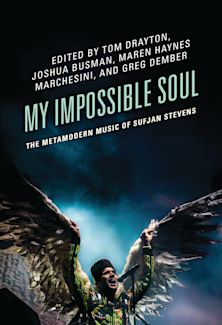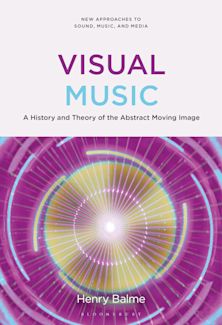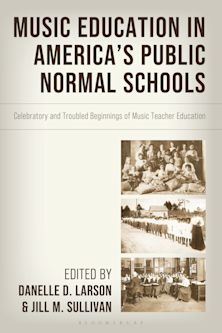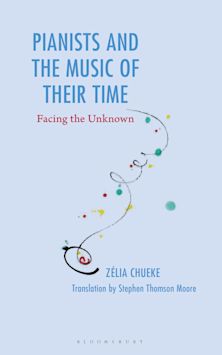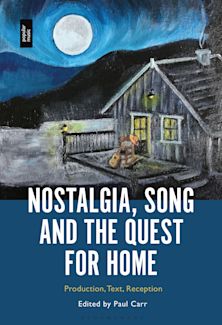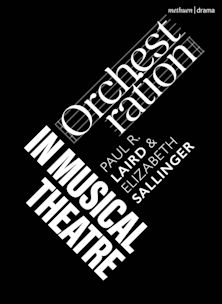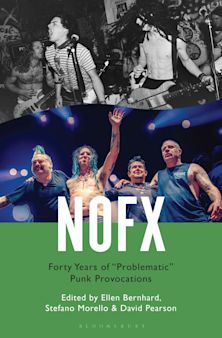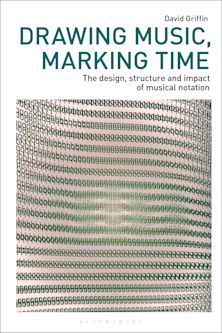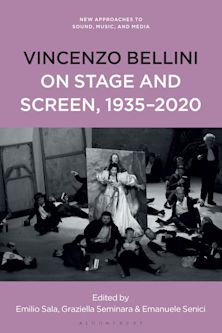- Home
- ACADEMIC
- Music & Sound Studies
- Musicology
- Queer Opera
This product is usually dispatched within 2-4 weeks
- Delivery and returns info
-
Flat rate of $10.00 for shipping anywhere in Australia
You must sign in to add this item to your wishlist. Please sign in or create an account
Description
In Queer Opera, Andrew Sutherland argues that operas often reflect characteristics of the society and epistime in which they are written but that they also do much more than that; operas have agency. LGBTQ+ social, cultural, and political issues have become an increasingly defining feature of twenty-first century life, and as agency for change, composers have turned to opera to underscore the lived queer experience. Sutherland posits that operas written before the sexual revolution of the mid-twentieth century utilized a codified language both in the libretto and score, communicating with those observers open to a queer reading. He explores the growing trend of local, small-scale, independent opera companies seen around the world towards the end of the first decade of the twenty-first century and argues that this has emboldened queer artists to reclaim opera as a queer space. He further argues that for several centuries, opera houses have been safe havens for queer composers, librettists, performers, and designers, and yet it is only relatively recently that any serious attempt at queer representation in operatic works has begun to be realized. In this book, he examines narratives and music of selected operas to walk through queer history in Western societies and shines a light on how many of opera's well-known characters, based on historical figures who represent pivotal moments in the queer story, are responsible in a variety of ways for the continued struggle for queer acceptance.
Table of Contents
Chapter 1: Antiquity
Chapter 2: Passing and Coding
Chapter 3: The Closet
Chapter 4: Hegemony
Chapter 5: Assimilation
Chapter 6: Killing Queers
Chapter 7: Homoerotic Awakening
Conclusion
References
About the Author
Product details
| Published | 11 Apr 2023 |
|---|---|
| Format | Hardback |
| Edition | 1st |
| Extent | 310 |
| ISBN | 9781666906073 |
| Imprint | Lexington Books |
| Illustrations | 8 b/w illustrations; 22 textboxes; |
| Dimensions | 237 x 158 mm |
| Publisher | Bloomsbury Publishing |
About the contributors
Reviews
-
In Queer Opera, Sutherland discusses a wide variety of niche operas that otherwise might be lost to obscurity. Sutherland's enthusiasm for the work of smaller opera houses that are more willing to platform queer stories is also commendable … Sutherland provides a fine contribution to the growing con-versation on the topic within musicological literature.
Notes: Journal of the Music Library Association
-
Queer Opera makes an important contribution to the evolving understanding of what opera can be for audiences today. It tackles complex issues of identity, behaviour, intention, and interpretation in operas both historic and contemporary. Acknowledging the complex relationship of opera and queerness throughout history, the book examines a wide range of works through a queer lens, and in doing so, offers up fresh insights into opera more generally.
Cat Hope, Monash University
-
Queer Opera is a meaningful and necessary text, providing perspectives worthy of consideration by all who love opera and wish to see it thrive.
Classical Singer Magazine
-
Sutherland, [can] be commended on many fronts. He has certainly done his homework. He considers over fifty operas from the Baroque to the present day. He does not set his sights on just the big names but includes several operas by contemporary composers whose names are hardly household words. He is scrupulous about including lesbian composers and gives commendable attention to operas with lesbian, bisexual, and trans characters. Along the way, he peppers his discussions with fascinating tidbits of information. This is hardly the first book to examine queer opera. A check of my local university library under the subject heading “Homosexuality in opera” produced 153 hits-books, dissertations, articles. Still, Sutherland's study may be one of the first to embrace a wider, “queer” compass.
The Gay and Lesbian Review Worldwide

ONLINE RESOURCES
Bloomsbury Collections
This book is available on Bloomsbury Collections where your library has access.












